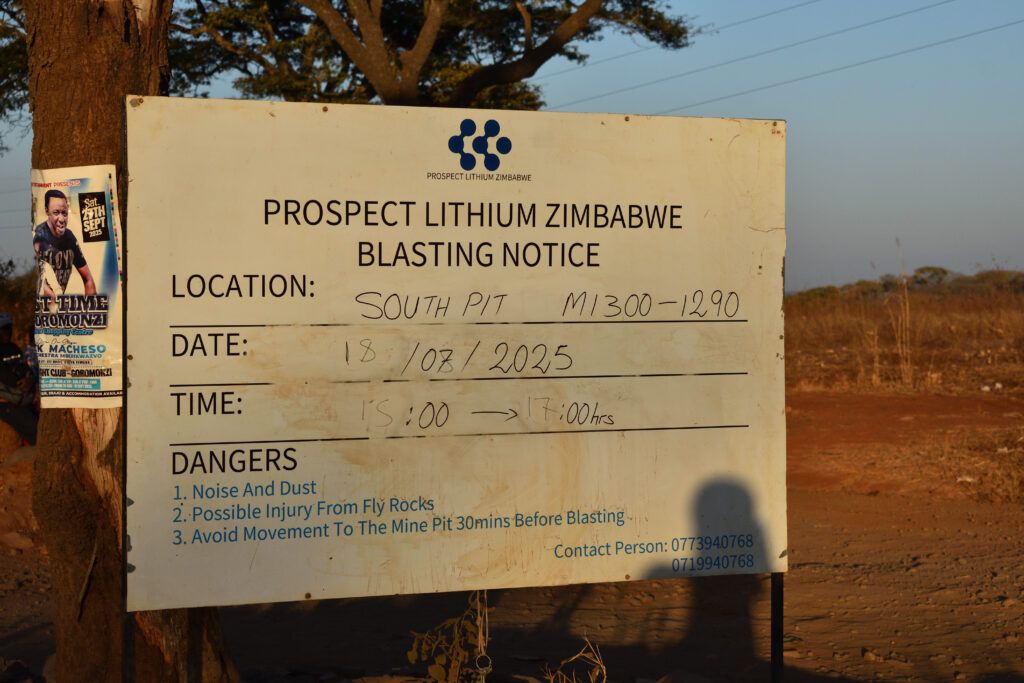31 October, 2025As the world races towards net zero, Africa’s vast reserves of cobalt, lithium and copper, which are vital for electric-vehicle batteries and renewable-energy technologies, have huge potential to industrialize the continent and boost manufacturing. Yet in the extraction of the critical minerals, Chinese multinationals, are engaging in unfair labour practices, paying low wages, and destroying the environment.
Controlling 85-90 per cent of rare-earth refining, China has poured billions of dollars into Sub-Saharan African mines via its Belt and Road Initiative, often bartering infrastructure for raw resources. In return, the minerals feed vertical supply chains for China’s factories. About US$4.5 billion has been invested in lithium mining.
In response to the violations, IndustriALL Global Union affiliates in Botswana, Democratic Republic of Congo (DRC), Zambia, and Zimbabwe, are adopting human rights due diligence (HRDD) as one of the strategies to stop workers and human rights violations. Unions have also raised concerns over environmental degradation during the mining of critical minerals by Chinese multinationals.
The violations are on the rights to join trade unions, on collective bargaining, health and safety, discrimination, racism, gender-based violence and harassment, precarious working conditions, and living wages. There is also weak enforcement of national labour laws and international standards by governments while corruption is common. There have been cases of physical assaults of workers by Chinese supervisors in Zimbabwe and elsewhere, as well as environmental degradation and water pollution.
A battery-supply-chain roundtable in the DRC, which alone supplies over 70 per cent of global cobalt, urged unions to launch an HRDD body to spotlight abuses and push the state into protective action. At China Molybdenum’s Tenke Fungurume mine – part of the Sino-Congolese ventures – the unions welcomed an impending audit by the Initiative for Responsible Mining Assurance as a first for Chinese firms on the continent. In Zimbabwe, the Diamond and Allied Minerals Workers Union battles intimidation at Sinomine’s Arcadia and Bikita lithium mines.
The Mine Workers Union of Botswana said that MMG’s Khoemacau copper mine imported Chinese labour to quash a strike over poor working conditions. Zambia’s February disaster at Sino-Metals Leach, a subsidiary of China Nonferrous Metal Mining Group, underscores the perils of negligence after a tailings dam burst unleashed 1.5m tonnes of acidic sludge laced with cyanide, arsenic and heavy metals into the Mwambashi and Kafue rivers. The 100km toxic sludge killed fish and livestock, withered maize and groundnuts, and poisoned water for 700,000 Kitwe residents, triggering fishing bans and supply cut-offs. Short-term illnesses like headaches and diarrhoea were reported while long term health risks will include organ failure and birth defects. The Mineworkers Union of Zambia is now campaigning for community redress and communities are taking Sino-Metals to court.
“HRDD in Chinese multinationals mines is vital because it is an inclusive strategy which safeguards workers and communities, enforces government accountability and prescribes remedies,”
said Glen Mpufane, IndustriALL director for mining and diamonds.
HRDD in Chinese multinational mines is one of the issues that will be discussed at the global mining conference in Sydney, Australia on 2 November.
